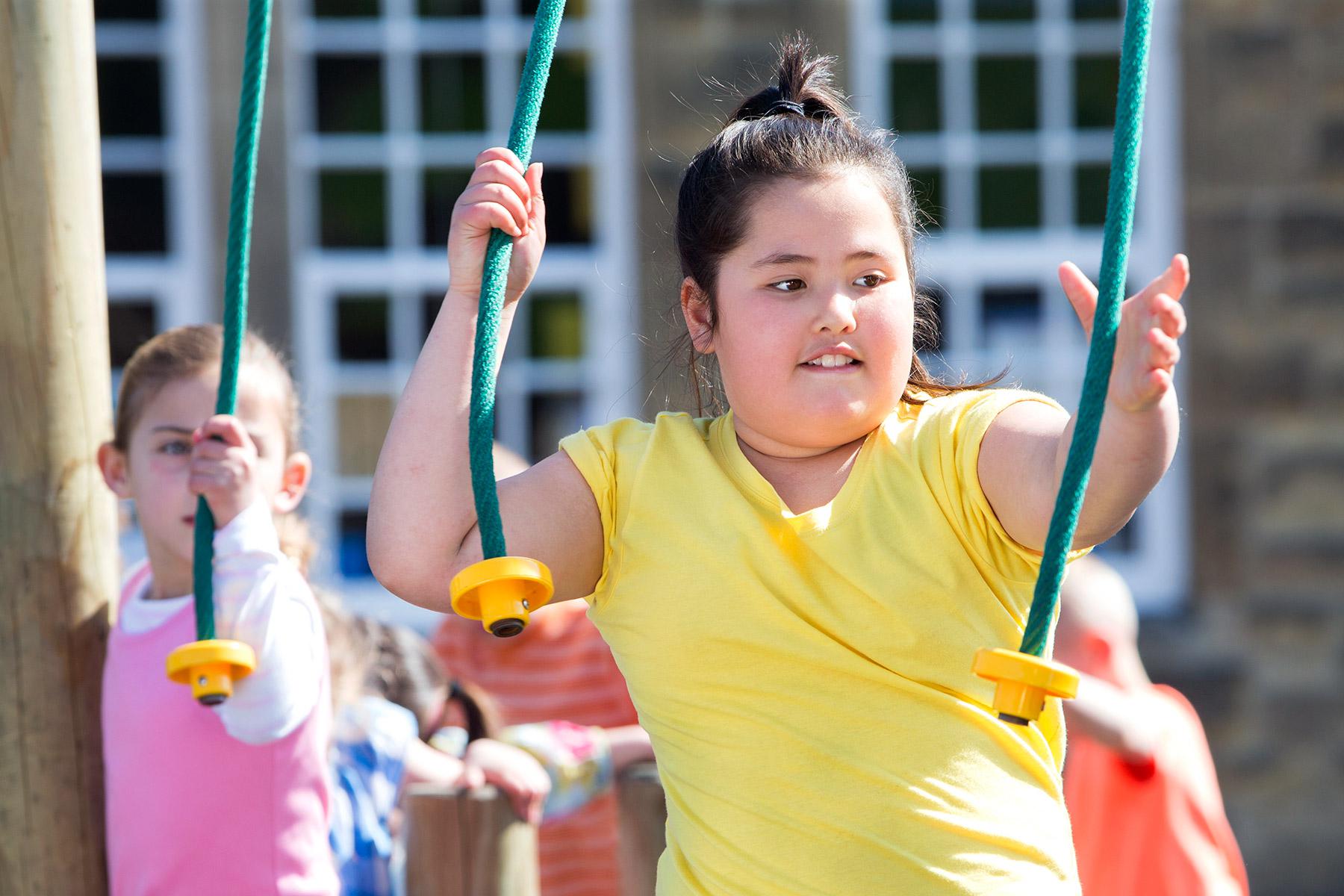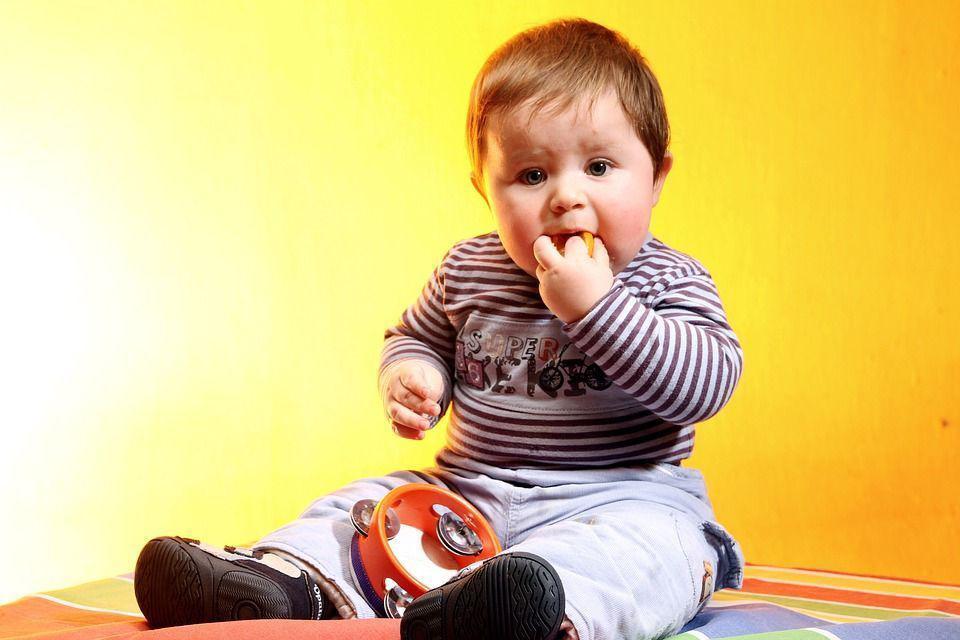Patient education: My child is overweight (The Basics)

How do I know if my child is overweight?
Your child's doctor or nurse will tell you. They will measure your child's height and weight and use those measurements to calculate a number called the "body mass index" or "BMI."
The doctor or nurse will use your child's BMI to tell if their weight is healthy for their height. To do this, the doctor or nurse will compare your child's BMI to the BMIs of other children of the same age and sex. If your child's BMI is high compared to other children, they are overweight. When a child's BMI is much too high, the condition is sometimes called "obesity."
Why is it important for my child to have a healthy weight?
It's important to have a healthy weight, because children who are very overweight can have:
Overweight children can have
- Asthma – This is a lung condition that can make it hard to breathe.
- High blood pressure
- Knee or back pain
- Liver problems
- Sleep apnea – This is a condition that makes people stop breathing for short periods during sleep.
It's also important that your child have a healthy weight so they are more likely to have a healthy weight later in life. Being overweight as a teen or adult can lead to medical problems such as high blood pressure, diabetes (high blood sugar), heart attacks, and some types of cancer.
What causes children to be overweight?
Children can be overweight for different reasons. Some children simply gain weight more easily than other children. These children can become overweight by eating too much, eating unhealthy foods, or not getting enough exercise. When children gain weight very easily, they have to work extra hard to have a healthy weight.
Although uncommon, some medicines and medical conditions can also make children gain weight more easily.
Will my child need tests if they are overweight?
Maybe. The doctor or nurse will talk with you and your child, and do an exam. They might do blood tests to check for:
- A condition that could be causing your child to gain weight easily
- Health problems that can happen when children are overweight

How can I help my child get to a healthy weight?
- To help your child have a healthy weight, you need to help them eat healthy foods and be more active. Making these lifestyle changes can be hard, especially at first. These are some goals you can work toward to help your child be healthier:
- Have your child eat 5 servings of fruits or vegetables each day. Fresh or cooked fruits and vegetables count towards the goal, but fruit juice does not. A serving is usually 1 whole fruit (such as an apple or banana) or a half cup of vegetables. If you don't have fresh fruits and vegetables available, you can use frozen or canned ones instead.
- If your child does not like vegetables or fruit, start slowly. Eat these foods yourself to set a good example, and have your child keep trying them.
- Limit your child's "screen time." Screen time includes watching TV, playing video games, or using a computer or other electronic device for things other than schoolwork. Experts recommend that young children (ages 2 to 5) have no more than 1 hour a day of screen time. Older children should also limit screen time. Spending too much time watching TV or using electronics raises a person's risk of being overweight.
- Have your child do physical activity for 1 hour or more each day. This can include organized activities like sports or dance. But children can also get exercise just through play.
- Do not give your child any sugary drinks. Sugary drinks include soda, sports drinks, and all juices.
- You and your child might not be able to meet all of these goals at first, but that's OK. Choose 1 or 2 goals to try first. Later on, you can try to meet all of these goals.
Is there anything else I can do to help my child?
Yes. You can:
Healthy habit for your child:
- Try to avoid bringing a lot of unhealthy food into your home. If you have unhealthy food in the home, your child is likely to eat it even if you tell them not to. Unhealthy foods include chips, cookies, pastries, and many other snack foods. It's OK for your child to eat these foods once in a while, but not too often.
- Make sure your child gets enough sleep. Some studies suggest that children who do not sleep enough are more likely to gain too much weight. In general, children 3 to 5 years old should get 10 to 13 hours of sleep (including naps). Older children should get 9 to 12 hours of sleep each night, and teens should get 8 to 10 hours.
- To encourage sleep, it helps to have a set bedtime and wake-up time every day – even non-school days. It's also a good idea to have a quiet before-bed routine. Try not to let your child watch TV or play video games right before bedtime.
- Involve the whole family. Have everyone in the family eat healthier and be more active, even those who have a healthy weight. Try to do physical activities as a family. This can be as simple as going to a park or playground or taking a walk.
- Tell your child that the goal is to be healthy and strong. Let them know that one important way to be healthy and strong is to eat healthy food and be active.
- Get help if being overweight is causing your child to be sad, worried, to have poor self-esteem, depression or have a hard time in school as to be bullied or persecuted. Ask the doctor or nurse for ways to get help for your child.
- Work with your child's doctor or nurse. Have regular check-ups with dietitian, so that the doctor or nurse can follow your child's BMI and health over time. Let them know if you are having trouble meeting the above goals. They can help you get started or give you some tips. They might also recommend that you talk with a dietitian (food expert). A dietitian can help you choose healthy foods and plan meals.
By Dr. Colin Jean-Louis Philippe
Dr. Collin graduated from the University of Angers France in 1974 with a diploma as a Medical Doctor and a diploma as a Paediatrician. He subsequently from 1985-2002 received diplomas in antibiotic usage, medical and biological statistics, health, organisation and economy, organ transplant from universities of Nantes, Curie, Paris and Lyon.
Dr. Collin is a member of the French Society of Pediatrics, American Society of Nephrologists, and the Pediatric Academy Societies.

For further information/booking appointment:
☎️024 3843 0748 (24/7)
📩hanoi@vietnammedicalpractice.com
 本ウェブサイトでは、みなさまが快適にご利用いただけるよう、Cookieを使用しています。
本ウェブサイトでは、みなさまが快適にご利用いただけるよう、Cookieを使用しています。